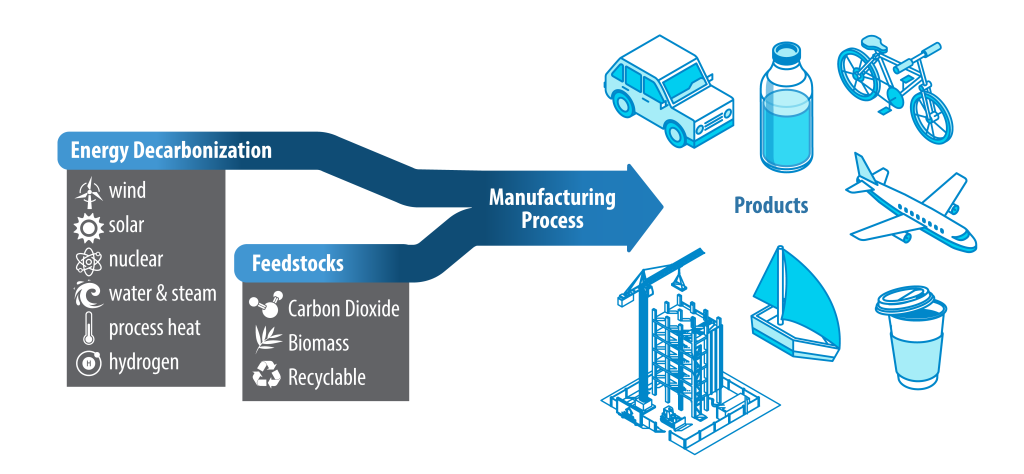Energy and Industrial Decarbonization Section

Developing and deploying real-world energy and manufacturing solutions to decarbonize industry.
Across the United States, the transportation, commercial, and industrial sectors are collectively responsible for 75 percent of the nation’s energy consumption. ORNL is developing and implementing cost-effective, scalable solutions for industry critical to reaching the nation’s goal of halving the nation’s carbon emissions by 2030 and achieving net-zero emissions by 2050.
The Energy and Industrial Decarbonization Section at ORNL is translating science innovation into commercial-scale solutions for resilient, energy efficient, and sustainable manufacturing and energy production. The section includes two groups with researchers in cross-cutting disciplines: Chemical Process Scale-Up and Manufacturing Energy Efficient Analysis.
Research begins with material science discoveries that enable utilization of renewable and waste feedstocks, including CO2, and evolves into engineering of processes, reactors, and manufacturing systems to demonstrate commercial viability. Together with industry partners, these energy sources and technologies are then applied to manufacturing processes to reduce energy use and increase resiliency, sustainability, and U.S. economic competitiveness. Finally, technoeconomic and life-cycle assessments close the loop—the life cycle of each process —by analyzing outcomes and identifying potential future improvements.
Researchers within this section leverage the world-class facilities and deep scientific expertise at ORNL as well as the Department of Energy’s Manufacturing Demonstration Facility, National Transportation Research Facility, and Carbon Fiber Technology Facility to conduct research and demonstrate scalable results for industry partners.


